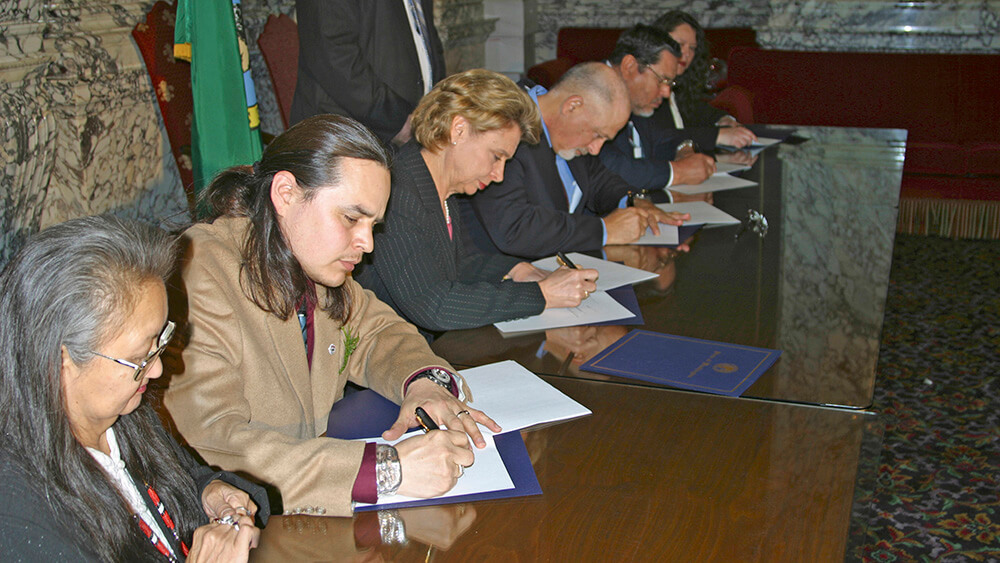Intergovernmental Policy Council

The sanctuary lies within the Usual and Accustomed treaty fishing, hunting, and gathering areas of the Hoh Tribe, Makah Tribe, Quileute Tribe, and the Quinault Indian Nation. These four tribes are often referred to as the Coastal Treaty Tribes. As sovereign nations, the Coastal Treaty Tribe have reserved treaty rights and are co-managers, along with the state of Washington and the United States, of fishery and related marine resources off the Olympic Coast.
These common interests and joint authorities led the Hoh, Makah, and Quileute tribes, the Quinault Indian Nation, the state of Washington, and the National Oceanic and Atmospheric Administration Office of National Marine Sanctuaries to create the Olympic Coast Intergovernmental Policy Council (IPC) in 2007.
The first of its kind in the nation, the IPC provides a regional forum for resource managers to exchange information, coordinate policies, and develop recommendations for resource management within the sanctuary.
The IPC's goals include:
- protecting the safety and health of coastal residents,
- enhancing the social and economic vitality of coastal communities, and
- improving the understanding and management of marine resources
Since its inception, the IPC has laid the groundwork for successful government-to-government collaboration, focusing on the following activities:
- participating in the required review of the sanctuary's management plan
- identifying research priorities, including the development of a five-year Ocean Ecosystem Monitoring and Research Initiative
- establishing initial priorities for a transition to ecosystem-based management, and
- seeking stable and long-term funding to support operation of the IPC.
Olympic Coast Intergovernmental Policy Council Charter (33k pdf)

